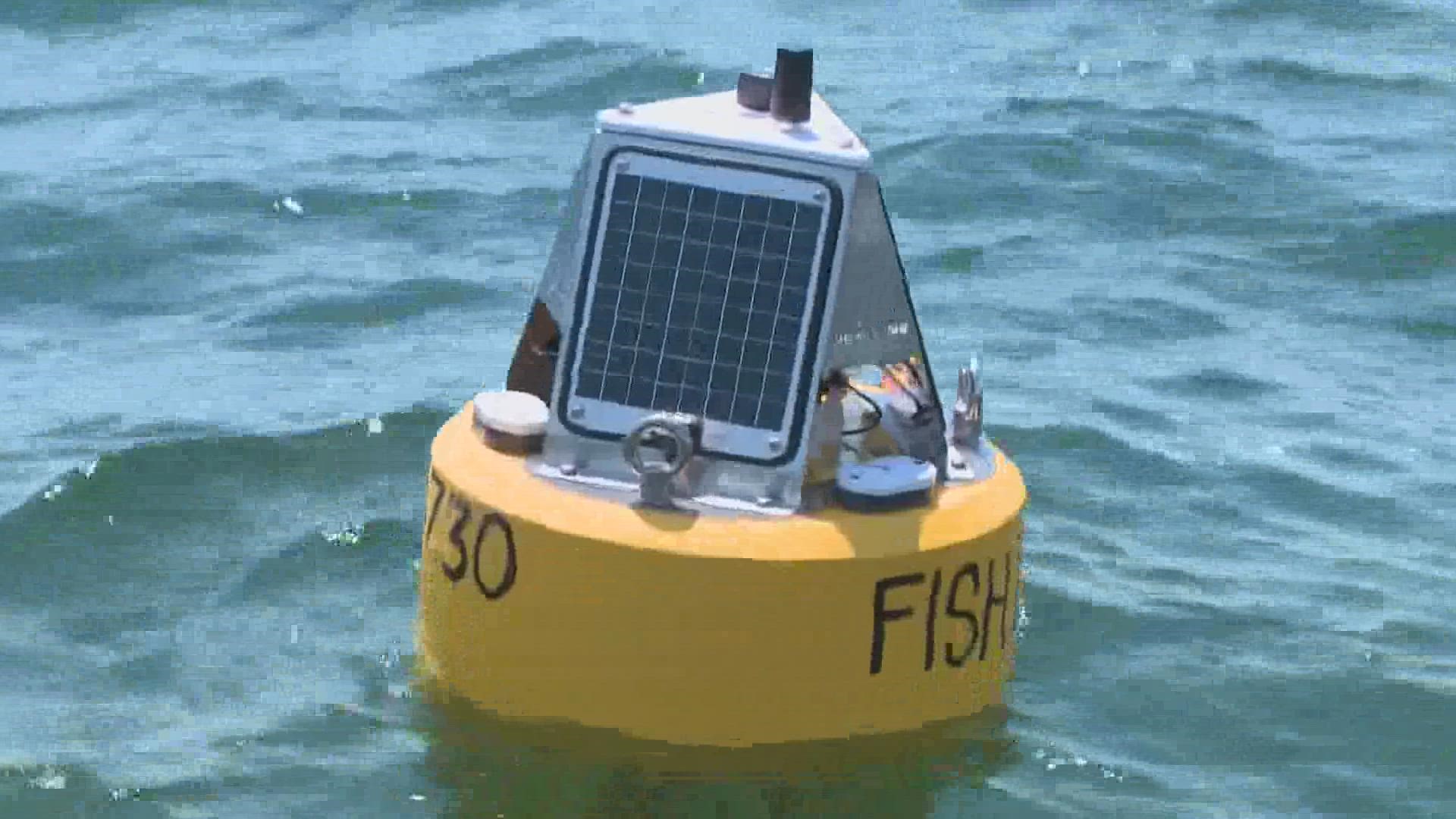BIDDEFORD, Maine — Maine marine biologists have activated a new tool to help find white sharks off its rocky coast and alert beach visitors in the process.
Students at the University of New England set out in two boats, along with Matthew Davis from the Maine Dept. of Marine Resources, to drop a warning buoy in the Atlantic.
The buoy will detect if a tagged shark - typically marked by the Atlantic White Shark Conservancy or the Division of Marine Fisheries, both in Massachusetts - wanders within in its range.
Davis and John Mohan, a UNE shark ecology professor, chose to drop the buoy within eyesight of the Old Orchard Beach pier and the daily barrage of summer swimmers and sunbathers who visit the sand below it.
What sets this buoy apart from other research equipment in Maine is that, when a white shark triggers it, the solar-powered buoy will immediately send an alert so authorities can warn nearby swimmers of the shark's presence.
"Monitoring white sharks up here is new," Davis said. "We haven’t been monitoring them in Maine for very long."
He elaborated that he has had access to roughly one-and-a-half years of consistent white shark tracking data in Maine. In that time, however, he counted 40 sharks that pinged buoys off Maine's coast.
They've always been here, Davis said. Researchers are just beginning to get quality equipment in Maine's waters to find them.
Mohan smiled wide after he and the other researchers pushed the bright yellow buoy into the water.
“This is awesome,” he grinned. “I’m ready to detect some sharks.”
The buoy, along with another planned to be placed further north near Popham Beach within days, will be another tool for Mohan and anyone interested in tracking the prehistoric predators.
“The goal is to understand how frequently they’re moving up and down,” he said. “Are they staying in once place? Are they moving? Hopefully we’ll be able to get that information.”
Shark attacks in Maine are exceedingly rare. The first-ever recorded death as a result of a shark encounter happened in 2020, when Julie Dimperio Holowach, 63, a retired New York fashion executive, was killed by a white shark in the ocean near Harpswell.
Still, they are apex predators. Alexa Cacacie is a UNE marine biology grad student who thinks Mainers can be proud of the work being done in their own state - not just for safety’s sake, but for better understanding this misunderstood species.
“The development of so much science and the care for the coastline and the species here has really, dramatically improved in the last few years,” she said.
Once we wade into the north Atlantic’s murky waters, it’s their world; we’re just swimming in it.
Now, Mainers should more easily know if one has come to check its northern territory.

